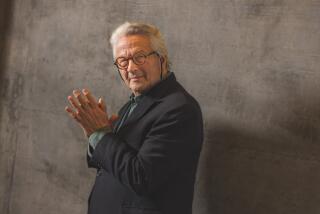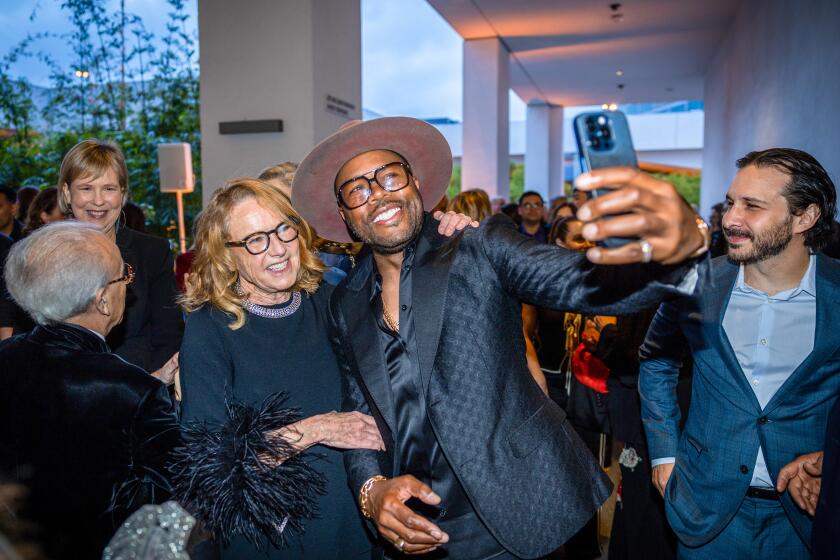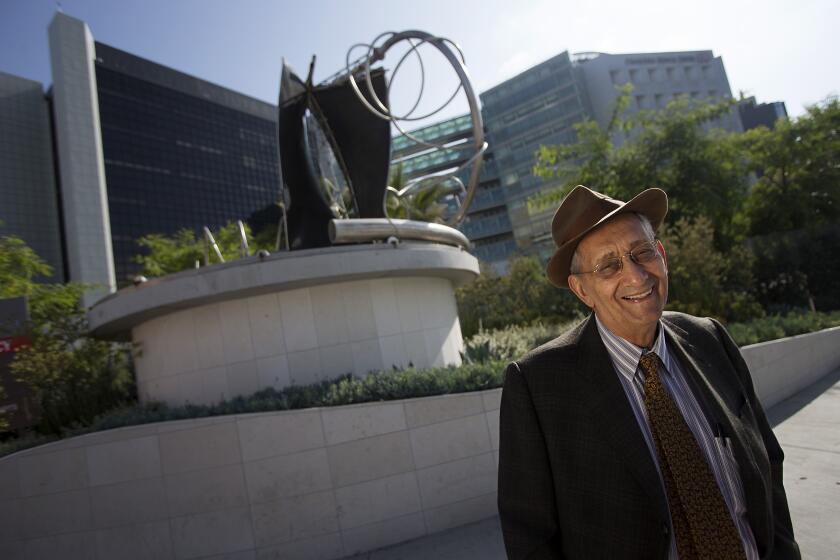MUSIC REVIEW : Yings’ Individualism Gets Lost in Demanding Program
Most brothers and sisters can’t even agree on what sitcom to watch; the Ying siblings, in contrast, make up a string quartet, that most demanding of collaborative ensembles.
Formed in 1988 at New York’s Eastman School of Music, the Ying quartet--violinists Timothy and Janet, violist Phillip and cellist David--went on to win the esteemed Naumberg Chamber Music Award in 1993. Hearing them Monday at John Anson Ford Amphitheatre, it was easy to tell why.
In a demanding program of string quartets by Mozart (K. 458, “The Hunt”), Bartok (No. 6) and Dvorak (No. 10), these young players revealed impressive ensemble skills: clarity and unity of intent, subtle balance and blend, tight execution. The music was communicated humanely, with compact force and contrast and characterful detail painted in.
Yet, something seemed missing. For all of its ensemble focus, the playing lacked the flair of individual personalities. Wholeness was the goal, and wholly accomplished. But in ideal quartets, four distinct personalities remain intact. This is the dichotomy and fascination of the medium. Perhaps the close-knit Yings will have to fight to achieve it.
Bartok’s Sixth spoke its somber and sardonic messages clearly, in a thoughtful and incisive reading. It only lacked the danger and eeriness, the feeling that something--a vein or a string--is surely going to pop, that some quartets discover.
Dvorak’s Tenth blossomed to most of its considerable, Schubertian charm, but without an individual projection of soulfulness and rhapsody that could have made it memorable. Mozart fared best in the Yings’ tight formation, its Classical equilibrium most closely matching the ensemble’s. Carefully wrought, this performance managed poise, force and point, rhythmic lift and an easy gait.
More to Read
The biggest entertainment stories
Get our big stories about Hollywood, film, television, music, arts, culture and more right in your inbox as soon as they publish.
You may occasionally receive promotional content from the Los Angeles Times.






